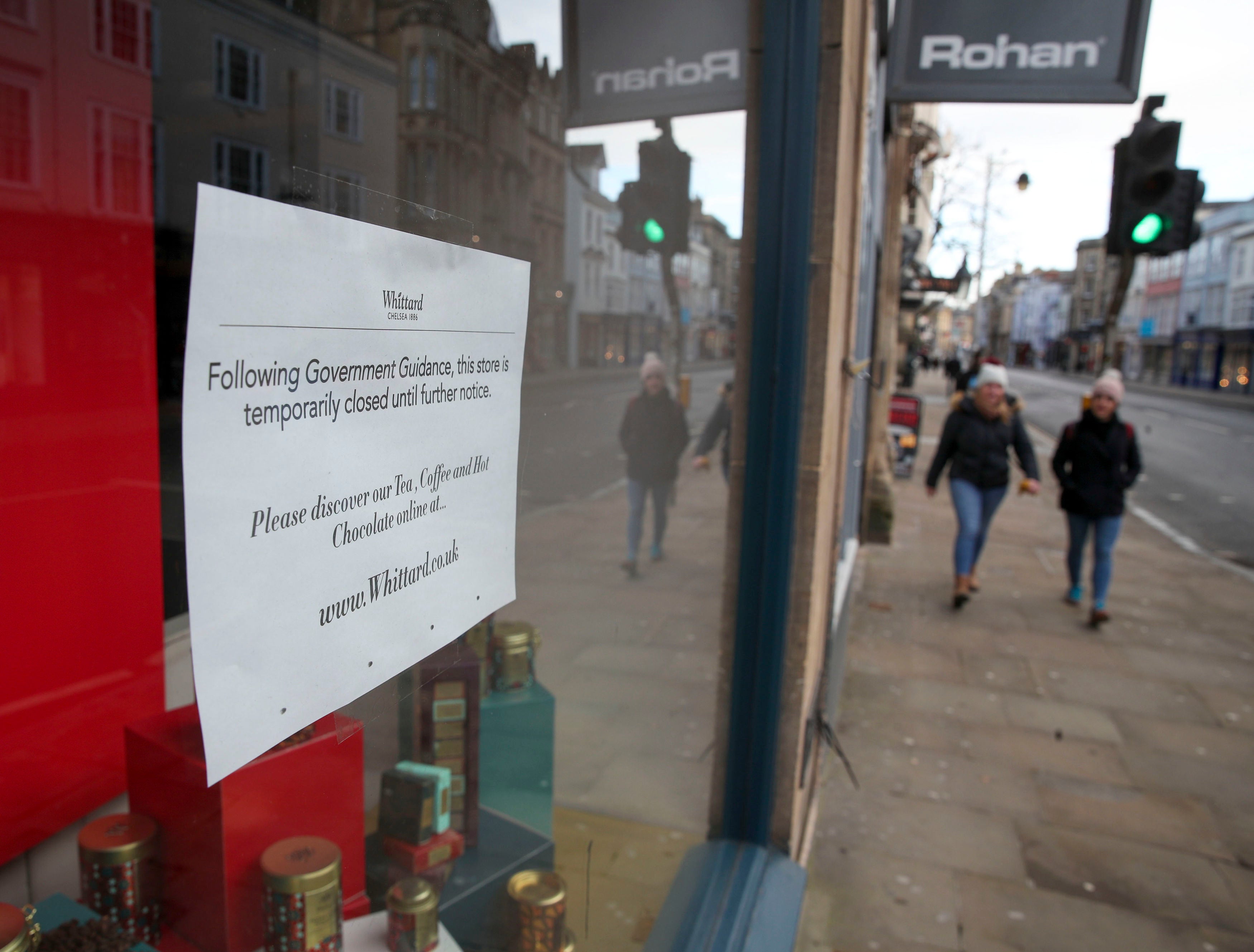The third lockdown has begun – but how bad will the economic damage be this time?
Rishi Sunak’s new package of support measures for businesses is welcome, but we should be realistic about its impact, writes Hamish McRae


Bang. The third lockdown begins. Rishi Sunak’s new package of support measures will blunt its impact for some businesses that have been particularly hard hit. But it would be naive to expect the government to be able to offset the full damage, damage that will mount inexorably as the weeks of shutdown continue.
The package first. The chancellor has already announced the string of emergency measures, which if you tot them up come to something like £280bn. These include the job protection scheme that has been extended to the end of April. Now we have another £4.6bn of grants directed particularly at the smaller hospitality, retail and leisure businesses. It is an imaginative scheme, based on rateable value, with grants of £4,000, £6,000 or £9,000 per property. If you are running a couple of pubs two cheques for £9,000 each is very helpful. The money is spread thin, with 600,000 businesses expected to be helped. As part of the package there is £694m in a discretionary fund to help other businesses that would not benefit from a rates-based payout. After all, a lot of small firms nowadays don’t operate from a business property.
The plan deserves a welcome, but we should be realistic about its impact. You have to see the £5bn in the context of an economy that last year was £2,170bn. So in macro-economic terms this is negligible. It is targeted and that’s great. There will be some small businesses that will scramble through the next two months that otherwise might have had to throw in the towel. But it won’t move the dial as far as the overall economy is concerned. There may be some further modest measures in the coming weeks, but for the next stage of the government’s effort to limit the damage we will have to wait until the budget in March.
How bad will that damage be? We have a template to help us compare what will happen in the next three months, based on the experience of the first lockdown last spring. Kallum Pickering, economist at Berenberg Bank, makes the point that it will be easier to nurse the economy through for two reasons: “First, financial markets and businesses can see the light at the end of the tunnel – mass vaccination should bring a decisive end to the pandemic this year. Second, both HM Treasury and the Bank of England are already providing markets, business and households with ample policy support.”
I think that is right, particularly the point about vaccination having a decisive effect. It is quite plausible that the speedy vaccination programme, if sustained, will enable the UK to escape this next leg of the recession ahead of Europe and maybe also the US. That is a big if, but in the hospitality business being able to open up a month earlier than might otherwise be the case may be the difference between survival and collapse.
But there will be a double dip recession. We have only just had the lockdown confirmed and estimates of its impact are just starting to come in. Thus Deutsche Bank thinks the economy will shrink by 1.3 per cent in the first quarter, then rise by 3 per cent for the second and third quarters before easing. It ends up with the outlook for this year broadly unchanged, as we make up the ground lost with a strong bounce afterwards.
What the experience of the past year has taught us is to be very cautious about all economic forecasts. However, a common sense conclusion would be: (a) that there will be no return to normal economic activity until most vulnerable people and most key workers have been vaccinated; and (b) once that has happened it will still be a bumpy ride with some sectors racing back, but others sorely wounded by what has happened. This is not fair, and while Rishi Sunak deserves credit for trying to make outcomes a little fairer, a lot of decent businesses have a miserable few weeks ahead.



Join our commenting forum
Join thought-provoking conversations, follow other Independent readers and see their replies
Comments